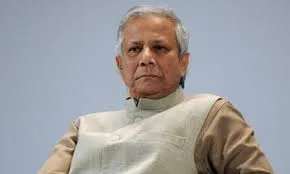India is working towards its ambitious climate targets, which involve a 33-35% reduction in the intensity of carbon dioxide (CO2) emissions by 2030, compared to the levels observed in 2005. Based on data from the World Bank, India’s CO2 intensity in 2005, measured as the amount of CO2 emitted per unit of GDP, was estimated to be approximately 0.61 kgCO2/USD. According to the Ministry of Environment, Forest and Climate (Government of India), India has witnessed 20-25% reduction in CO2 emission intensity by 2020, compared to 2005 levels, which is commendable. Not only does low CO2 emission intensity promote an environment that we all crave for, but it also acts as a linchpin for high economic growth.
While India applies several sources, such as the use of non-fossil fuel-based electricity, enhancement of forests carbon sinks and so on, to control CO2 emissions, carbon credits (CCs) are seen as a crucial approach to protect the environment. CCs foster market-driven incentives to reduce emissions. CCs form a key component of carbon emissions trading, which aims to mitigate climate change by reducing greenhouse gas (GHGs) emissions. CCs represent a unit of measurement that quantifies the removal or reduction of one tonne of CO2 or its equivalent in other GHGs from the atmosphere.
CCs function on a cap-and-trade system. This system caps the total level of GHGs emissions but allows industries with low emissions to sell their extra credits to larger polluters. Creating a market price for emissions turns CO2 into a commodity, pushing companies not just to comply but to find the most cost-effective way to reduce their emissions. CCs, therefore, establish a monetary incentive for decreasing GHG emissions.
Entities with emissions below a specified limit are rewarded with CCs that can be traded in carbon markets. This system of CCs prospers under international climate agreements such as the Kyoto Protocol and the Paris Agreement. This market-oriented approach promotes the development and investment in cleaner technology, potentially expediting India’s shift away from fossil fuels.
While the system of CCs is at a nascent stage in India, it has the potential to fight against climate change, which is, in one aspect, a by-product of its rapid growth. There is no denying that India’s swift industrialisation and economic expansion have taken a substantial environmental toll. Major urban centres are confronted with some of the most severe air pollution levels worldwide, directly impacting public health and economic productivity. Incorporating CCs into India’s climate policy has two important advantages: reducing the environmental effect and promoting economic growth in the green technology industries.
However, incorporating CCs in the Indian system is not devoid of challenges. These challenges are local, and local solutions are essential to deal with them. India operates within the framework of the Clean Development Mechanism (CDM) of the United Nations Framework Convention on Climate Change (UNFCCC) through the CCs system. Still, it is crucial to maintain monitoring at the local level. It is motivating to see the Indian Initiatives from the Ministry of Environment, Forest and Climate Change, which spearheads the governance of CCs; the Central Pollution Control Board, which ensures environmental law enforcement; the Designated National Authority, which approves and supervises CDM projects. In addition, the Ministry of Finance in India may regulate financial aspects while state governments implement and monitor CCs projects. A unified approach to develop policies, guidelines, and regulations for approvals of energy-efficient projects, compliance, and monitoring is essential, and we are witnessing this. Such unified efforts should strongly regulate CCs trading from being misused by companies to falsely data and portraying themselves as environmentally friendly. Also, such a unified approach will ensure the adoption of legitimate methods to reduce GHGs.
Though CCs offer benefits, the system is not exempt from criticism. Critics contend that these mechanisms enable significant polluters to effectively evade substantial charges by purchasing permits, granting them the right to continue polluting. Furthermore, the intricacy and opaqueness of many carbon markets might result in fraudulent activities and corruption. Ensuring the integrity of carbon markets is of utmost importance, requiring meticulous monitoring and strict enforcement.
Further, it is critical to gauge the monetary worth of CCs. The price of CCs can vary significantly depending on the market and the specific regulations of each carbon trading scheme. As of the latest data, prices can range from as little as $0.0 to over $155.86 per metric ton of CO2. These fluctuations are influenced by government policies, the type of credits, and market demand. In the global context, companies like Tesla have profited immensely by selling the excess credits they earn through their production of electric vehicles and renewable energy projects. Another example is Shell, which has integrated CCs into its broader strategy of offsetting emissions from its operations and fuel products.
India stands to gain immense advantages from CCs. CCs have the potential to stimulate investments in renewable energy, afforestation initiatives, and energy efficiency upgrades in many sectors. In addition, they provide a financial motivation for enterprises to engage in innovation, perhaps establishing India as a frontrunner in sustainable technologies worldwide. Investments in the renewable energy sector have increased manifold since 2014, partly due to carbon financing mechanisms.
India’s utilisation of CCs should transcend mere compliance and become integral to comprehensive climate policy. This necessitates governmental intervention to establish pragmatic yet ambitious limits on emissions, assistance for industry in their transition towards more environmentally friendly technology, and active involvement of the people to cultivate a sustainable mindset.
At this critical juncture, efficiently using CCs can steer India towards a more environmentally sustainable and economically viable future. It is imperative to take immediate action, implement explicit policies, establish vigilant supervision, and demonstrate an uncompromising dedication to fulfilling our environmental obligations. Thoughtful consideration of CCs mechanisms is a first step towards advocating for practical climate solutions.
Lastly, while this system, in essence, gives rights in the form of tradable CCs to offset pollution-creating activities, the moral dilemma of whether money can be attached to sell and buy CCs in carbon markets remains a pressing question. Can money and markets justify the climate-contentious activities in the form of CCs?
Dr. Neha Seth, Associate Professor, Symbiosis Institute of Business Management, Noida
Symbiosis International (Deemed University), Pune,
Dr. Kuldeep Singh, Assistant Professor, Symbiosis Institute of Business Management, Pune, Symbiosis International (Deemed University), Pune









